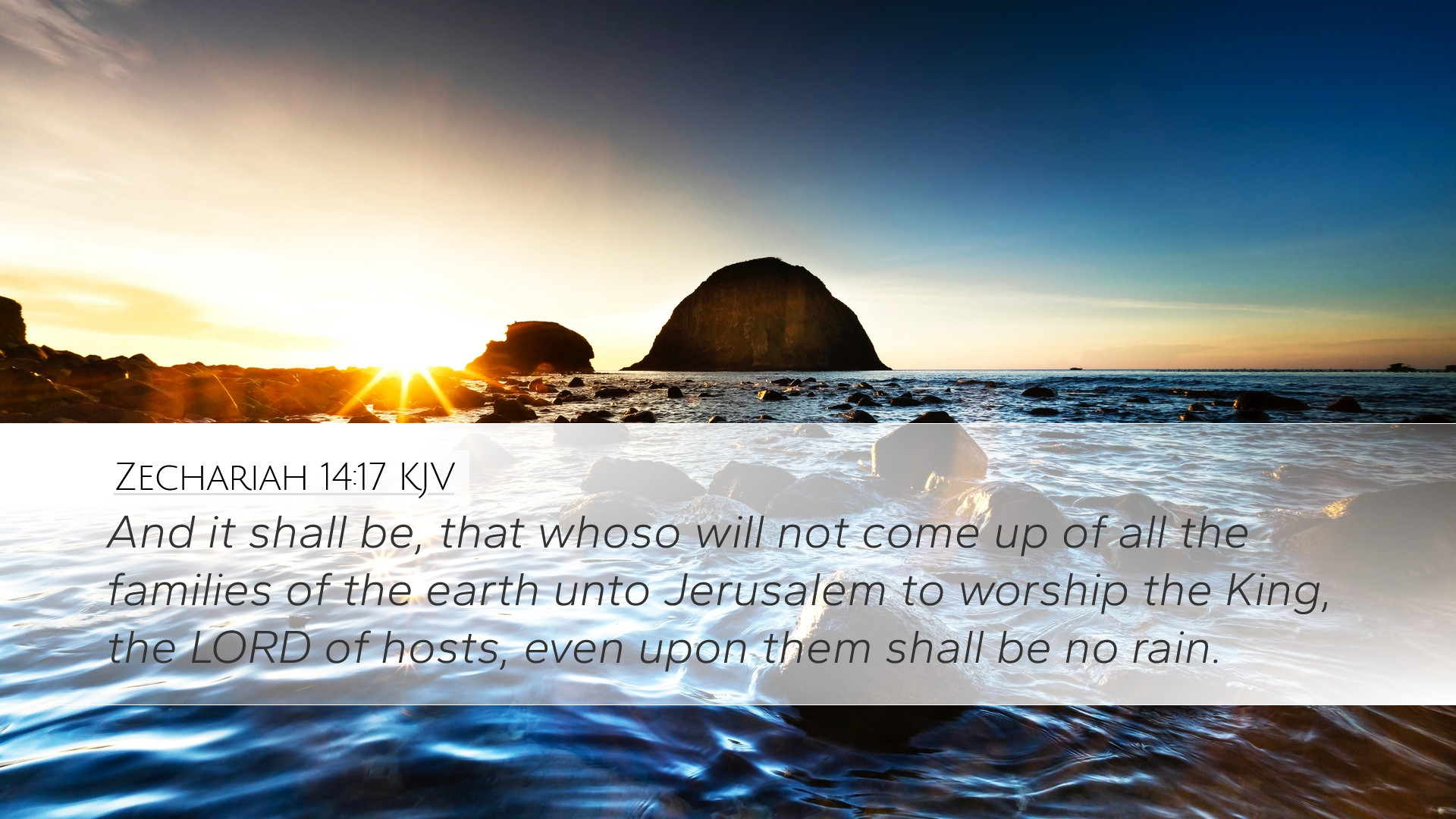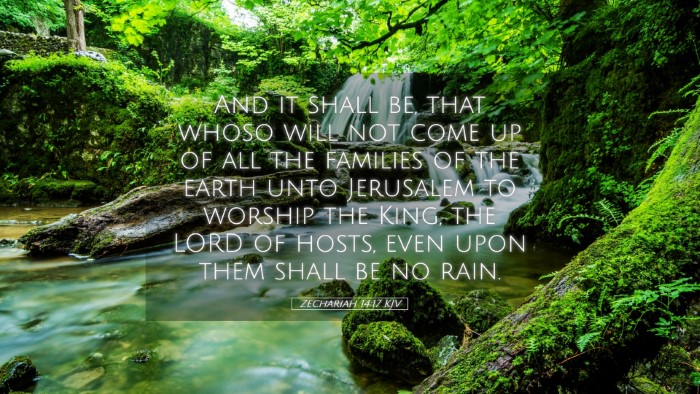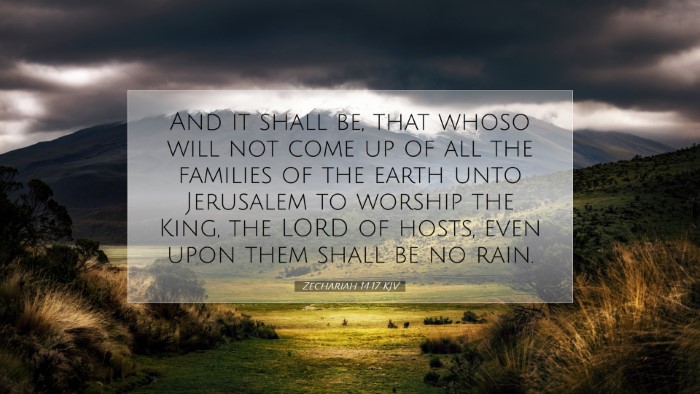Commentary on Zechariah 14:17
Bible Verse: "And it shall be, that whoso will not come up of all the families of the earth unto Jerusalem to worship the King, the Lord of hosts, even upon them shall be no rain."
Introduction
This verse from the Book of Zechariah presents a significant understanding of worship and divine punishment. The prophetic implications of this passage can be ancillary for pastors, theologians, and scholars alike as they unravel the rich theology embedded within the text. It carries not only a message for its original audience but also holds relevance for contemporary faith practice.
Contextual Background
The Book of Zechariah was written during a critical period of Israel's history following the Babylonian exile. It conveys a vision of restoration and hope, emphasizing the sovereignty of God and His future kingdom. This chapter particularly speaks about the coming day of the Lord, pointing towards a time when God will manifest His rule on earth. In this prophetic vision, Jerusalem is the focal point of worship, underscoring its centrality in God's redemptive plan.
Theological Insights
The passage can be dissected through several theological lenses:
- The Sovereignty of God: The phrase "the Lord of hosts" signifies God's supreme authority over all creation. His command that all nations come to Jerusalem signifies His desire for worship and obedience from all peoples.
- The Necessity of Worship: Worship is presented as a requirement for receiving God's blessings, illustrated by the conditional statement about rain. This denotes that spiritual neglect leads to physical consequences.
- Judgment and Grace: The latter part of the verse warns of judgment — the withholding of rain — serving to highlight that rejecting God's mandate results in divine displeasure. Yet, this also points to the grace available in obedience.
- Covenant relations: The passage reestablishes Israel’s covenantal relationship with God, ensuring a future where worship and community governance are intertwined.
Commentary Insights
Matthew Henry's Perspective
Matthew Henry emphasizes the universality of God's kingdom. He notes that worship in Jerusalem symbolizes acknowledgment of God's supremacy. Henry warns that the refusal to worship God will result in divine lack of favor, illustrated by the metaphor of drought. He draws parallels to previous instances in Scripture where disobedience was met with natural calamities.
Albert Barnes' Analysis
Albert Barnes provides a critical examination of the "families of the earth" phrase, interpreting it as an inclusive call for all nations to recognize God's kingship. Barnes elaborates on the significance of coming to Jerusalem — a prophetic act of submission and reverence. He underscores the idea that God is not merely a local deity but the sovereign ruler over all nations, and failure to recognize this will lead to existential consequences reflected in the absence of rain.
Adam Clarke's Commentary
Adam Clarke enriches the discussion by focusing on the symbolic nature of rain as a blessing. He pertains that the withholding of rain signifies spiritual barrenness resulting from disobedience. Clarke argues that this passage serves as a reminder of the interdependence between spiritual fidelity and physical well-being. He expounds upon the theme that God demands genuine worship and that neglecting this worship leads to His judgment.
Practical Applications
- Call to Worship: This verse serves as a reminder for today's believers about the importance of committing to worship, not just privately but within the community of faith.
- Understanding Judgment: The modern church should pay heed to the implications of spiritual neglect, recognizing that disregard for God's commands may invite unfavorable circumstances.
- Celebrating Unity: As the passage calls for all families to come together in Jerusalem, it encourages contemporary congregations to foster unity and inclusivity in worship.
- Role of Prayer: The mention of rain signifies the need for continual prayer and reliance on God for spiritual sustenance and direction.
Conclusion
Zechariah 14:17 carries profound implications for understanding God’s expectations of worship and the potential consequences for nations and individuals who fail to honor Him. By weaving together perspectives from esteemed commentators like Matthew Henry, Albert Barnes, and Adam Clarke, we gain a holistic view of the text that echoes through centuries — urging faithful worship and obedience in a covenant relationship with God. For pastors and scholars, this passage serves as both a challenge and encouragement to proclaim the sovereignty of God and facilitate a culture of reverent worship in today’s world.


